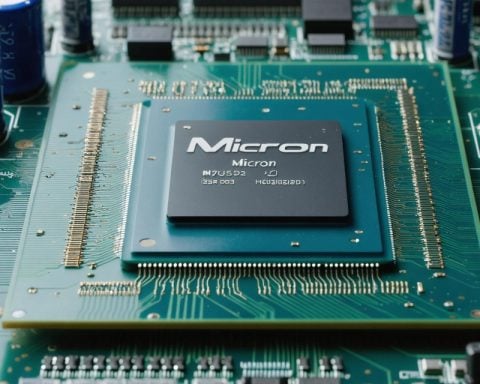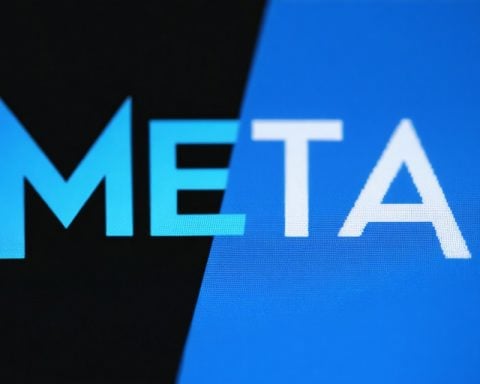In a dynamic showcase of innovation and collaboration, the bustling Faena Forum served as the epicenter for the inaugural Miami Tech and Invest Conference. Held under sunny skies from November 13-15, the gathering united 700 attendees from Israel and the United States to witness 27 speakers across 14 engaging sessions, spotlighting groundbreaking advancements in technology.
Israel’s Startup Scene Shines
Israel, aptly dubbed the “Startup Nation,” stands as a hub of emerging tech enterprises, boasting the highest density of technology companies outside Silicon Valley. Yoel Esteron, Calcalist founder and Publisher, illuminated the strategic advantage of investing in Israeli tech, with striking examples such as Google’s multi-billion dollar acquisition interest. Bank Leumi’s leader, Hanan Friedman, announced a robust $77 million fund, poised to fortify the tech industry post-conflict.
Furthermore, Thomas Nides of Blackstone expressed optimism about prospective changes under new US leadership and the potential economic transformation stemming from an impending Israel-Saudi peace deal.
Miami’s Technological Ascendance
The conference wasn’t solely Israel-centric; Miami also garnered accolades for its impressive strides in tech development. According to Melissa Medina, CEO of eMerge Americas, a favorable business environment has propelled Miami to seventh place in global deal values, with Florida leading in tech talent migration.
Garry Fatakhov, a co-founder of Siemplify, enthused over Miami’s vibrant growth as more talents relocate to the city. Meanwhile, Howard Lerman of Roam emphasized the need for a remarkable exit to cement Miami’s tech stature.
Showcasing Visionary Israeli Founders
The grand finale witnessed 14 visionary Israeli startups presenting their innovations in sectors from health tech to cybersecurity, underscoring Israel’s pioneering spirit and potential to reshape industries worldwide.
Unveiling Hidden Dimensions: Impacts of the Miami Tech and Invest Conference
The recently concluded Miami Tech and Invest Conference was more than just a convergence of innovation and entrepreneurship; it was a testament to the evolving tech landscape that is reshaping societies and economies globally. While the event highlighted well-known successes from Israel and burgeoning tech ambitions in Miami, several underlying themes emerged unexpectedly that bear significant implications for people, communities, and nations.
Unseen Artistry of Cross-Cultural Collaboration
Beyond the glitz of tech talks and investment discussions, the Miami Tech and Invest Conference was a powerful testament to the unique blend of innovation sparked by cross-cultural collaboration. The presence of American and Israeli minds under one roof unearthed a cultural synergy that extends far beyond business dealings, fostering an environment where ideas can cross-pollinate rapidly.
Advantages and Disadvantages of Tech Migration
One of the more captivating outcomes of the conference was the observation of tech talent migration, particularly toward Miami. The influx of skilled professionals into Miami signifies robust growth potential but also introduces challenges and opportunities.
Advantages:
1. Diversification and Economic Growth: New talent pools bring fresh perspectives and skills, boosting creativity and productivity.
2. Increased Investments and Global Partnerships: Miami’s rise as a tech hub attracts investors and amplifies international partnerships, creating jobs and stimulating the local economy.
Disadvantages:
1. Rising Cost of Living: As Miami becomes a magnet for tech professionals, increased demand could drive up living costs, potentially displacing long-time residents.
2. Skills Gap: Rapid tech growth requires specific skills that may not yet be widespread in the local workforce, potentially leading to a mismatch and reliance on imported talent.
Implications of an Israel-Saudi Peace Deal
The potential Israel-Saudi peace deal hinted at during the conference brings with it fascinating prospects. Should this diplomatic achievement materialize, it could facilitate unprecedented tech collaborations across the Middle East, creating a larger interconnected marketplace.
Controversies and Questions:
– Will peace lead to equitable tech advancements for all communities involved, or will it solely benefit affluent markets?
– Can entrepreneurial bridges foster mutual understanding, or will there be resistance from traditional sectors?
The Role of Innovative Startups
As seen with the demonstration by Israeli startups, innovation emerges as a double-edged sword. Startups are increasingly focusing on sectors like health tech and cybersecurity, areas with the potential to considerably enhance quality of life. However, these advancements also come with ethical questions regarding data privacy, equity, and access.
Interesting Facts:
– Startup ecosystems like those in Israel often function with minimal regulatory oversight, allowing rapid experimentation but sometimes overlooking consumer protections.
This climate begs the question: How can regulations keep pace with technology to ensure protections without stifling innovation?
Conclusion
In summary, the Miami Tech and Invest Conference showcased more than just technological advancements. It highlighted potential cultural shifts, revealed economic challenges, and hinted at future diplomatic collaborations. These revelations hold significant weight for communities around the globe, offering both exciting new opportunities and serious considerations for future strategies and policies.
For more insights into startup ecosystems and tech trends, visit the following related resources:
Calcalist
eMerge Americas
Blackstone



















